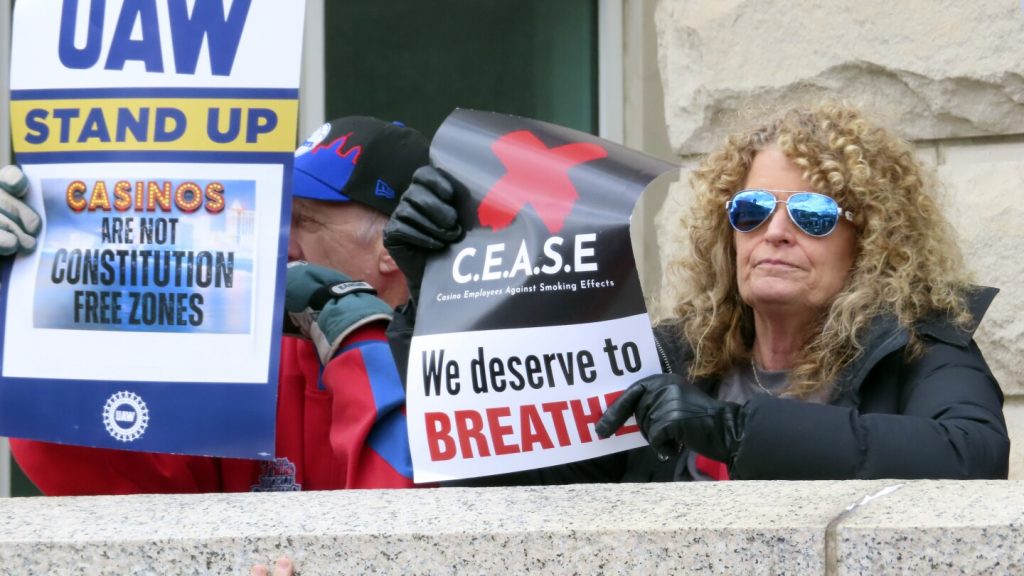Atlantic City’s main casino workers union, Local 54 of the Unite Here union, along with the New Jersey attorney general, recently filed a motion to dismiss a lawsuit brought by a different union seeking to ban smoking at the city’s nine casinos. Local 54 argued that a third of the 10,000 workers it represents would be at risk of losing their jobs if smoking were banned, as smoking is currently allowed on 25% of the casino floor. The lawsuit brought by the United Auto Workers seeks to overturn New Jersey’s indoor smoking law, which bans smoking in virtually every workplace except casinos.
New Jersey Attorney General Matthew Platkin, representing Democratic Gov. Phil Murphy and the state health department, defended the state’s indoor smoking law, stating that it does not infringe on any constitutional rights and does not deny equal protection under the law. The attorney general urged the court to dismiss the lawsuit, which seeks to overturn the state’s smoking ban in casinos. Nancy Erika Smith, the lawyer who filed the lawsuit, expressed disbelief at Local 54’s resistance to the ban, noting that it goes against the health and safety of their members. She highlighted that the economic arguments put forward by Local 54 are irrelevant to the constitutional question at hand.
Donna DeCaprio, president of Local 54, emphasized the need to balance worker health and job preservation in the debate over banning smoking in Atlantic City casinos. She noted that a total smoking ban would have catastrophic consequences for the city, as a significant portion of gambling revenue comes from smoking sections. The union supports legislation that would maintain the current 25% limit on the casino floor for smoking but would allow smoking in designated areas that are adequately ventilated and away from table games staffed by live dealers. The issue of whether to ban smoking has sparked controversy in Atlantic City and other states where workers have raised concerns about secondhand smoke.
Workers, including table games dealers, who are advocating for a smoke-free environment argue that a smoking ban would attract more customers and offset any financial losses from smokers going elsewhere. Nicole Vitola, a Borgata dealer and anti-smoking advocate, accused Local 54 of prioritizing casino management over the health and safety of workers. The union countered this argument by highlighting the economic impact of a total smoking ban, citing a significant drop in casino revenues when a short-lived ban was imposed in 2008. The union argued that a smoking ban could put thousands of jobs at risk and jeopardize the livelihoods of workers and their families.
The debate over banning smoking in Atlantic City casinos is part of a broader conversation occurring in other states like Rhode Island, Pennsylvania, Kansas, and Virginia, where workers are also advocating for smoke-free environments. The issue has significant implications for worker health and the economic viability of the casino industry. Local 54 continues to push for legislation that strikes a balance between worker safety and job preservation, while opponents argue that a smoking ban would negatively impact casino revenues and worker livelihoods. The outcome of this debate will have a lasting impact on the future of Atlantic City’s casino industry and the well-being of its workers.


